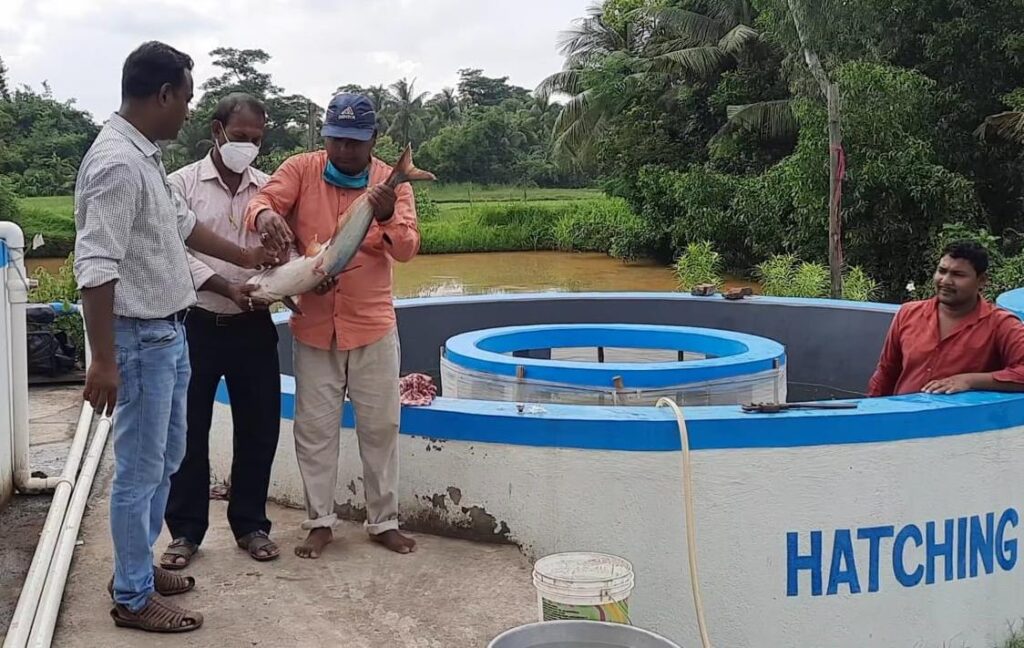Haldia: The fishing folks of Haldia have added another feather in their cap by successfully breeding endangered freshwater native pangasius fish.
After getting encouraging results with the breeding of the ‘Dakkhinatter Rui’, once almost non-existent in the eastern region, the farmers of the region carried out artificial breeding of the pangasius fish last week. It was carried out by Subrata Maiti, who owes a hatchery in Chaulkhola village of Haldia.
“When I heard that there was some Deshi Pangas fish weighing about five kilograms in the pond of a person in the village, I brought the fish from him. I learned the technique of artificial breeding and fry production of this fish from Suman Kumar Sahu who is the Fishery Officer, Haldia,” Maiti said and added that he is getting the full support of the Haldia Block Fisheries Officer for artificial breeding.
Sahu had arranged a virtual training demonstration for the students of fishery sciences and zoology along with other fish farmers during the artificial breeding process o show the technique of fry production through artificial insemination of endangered pangasius.
Gokul Maji, who is the Matsya Karmadhakshya and some fish farmers of the area were present at the hatchery, which was set up under the government-aided Blue Revolution project.
Pangasius fish is found in freshwater and saltwater ponds, especially in rivers and estuaries. They survive by eating animals and small dry insectivorous food and small snails. The fish is very tasty, and easy to eat as it has less cut. Reportedly, in 2015, IUCN listed the fish as an endangered species.
Sahu said that the maturing (4.5-5 kg) female pangasius, a native female, has an egg capacity of 120,000 to 3.5 million and the breeding season of the fish is from July to August. So if the fry is produced at this time, then the fish farmers of the area can easily cultivate with this fry. Artificial insemination is a significant factor in increasing the quality and expansion of endangered native fish.
“Unemployed youths can become self-reliant through fish farming or artificial insemination of fish, an initiative we are encouraging from the department. More virtual training and counselling will be provided for the expansion of fish farming during this time of crisis,” he said.
The Haldia Fisheries Officer is currently providing virtual training and consultation which is further encouraging fish farmers. College and university students are also learning Haldia’s modern fishing methods.
(Please share your experience, interesting news articles and case studies at aquapostnews@gmail.com)

